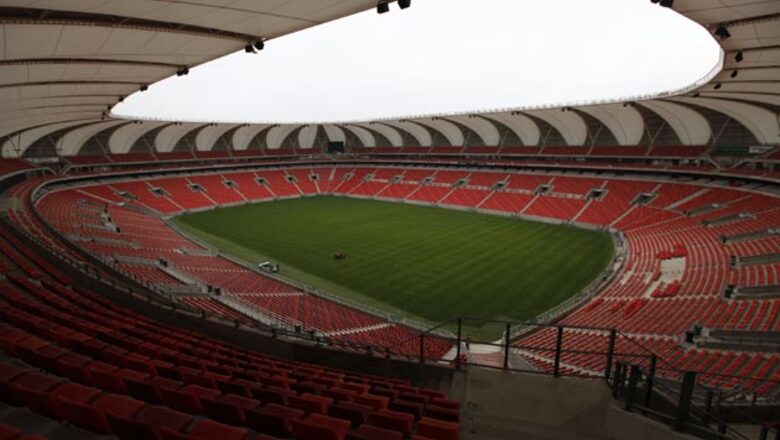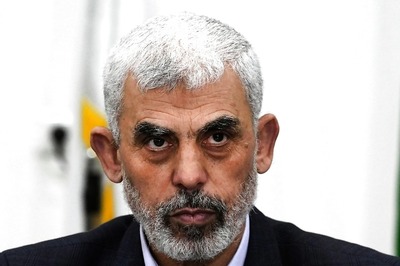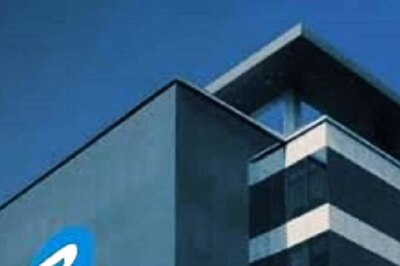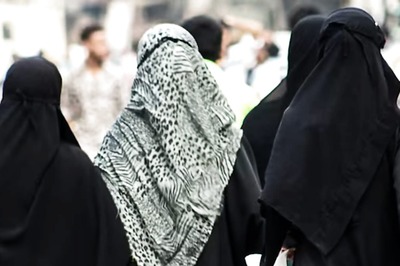
views
The Nelson Mandela Bay Stadium is situated in Port Elizabeth on South Africa's south-east coastline. It is set to host five first round matches, one second round game, one quarter-final, and the third place play-off. The stadium has a capacity of 48,000, and its design is a beautiful one, with a very modern exterior and a clean and sharp interior.
The stadium has an eye-catching, unique roof structure and a spectacular view, overlooking the North End Lake. There are not many stadiums in the world that are designed and constructed overlooking a lake; this in itself is a very distinctive feature of the Nelson Mandela Bay Multi-Purpose Stadium, in addition to its striking design.
The stadium is one of the newly-built stadiums for the 2010 World Cup, and it was in fact completed a year prior to the start date of the showpiece event - a major milestone for the city. Before the construction of this multi-purpose venue, all international football matches were played at the Eastern Province rugby stadium, the EPRU Stadium, but now the province and the city can boast fantastic football facilities.
The 48,000 capacity will be more than enough to welcome the World Cup crowds for the matches being hosted in Port Elizabeth. The seats are of different shades from light orange to dark red. They are arranged at random, but this was done to help the stadium appear full at all times. It also means that sun damage is less of a problem and replaced seats are less noticeable. The playing field is natural grass with the outer surrounding area formed by artificial turf.
Facts
- Surface: Grass
- Capacity: 48,000
- It is the first world class football stadium to be built in the largely impoverished Eastern Cape province.
- It boasts 150 VIP suites, 60 business suites, a sports clothing shop, gymnasium, 500 parking bays and lecture and function rooms.
- Port Elizabeth is the hometown of World Cup Organising Committee CEO Dr Danny Jordaan.
- The stadium has a total of 11 elevators, while no escalators have been installed.
- The stadium was supposed to host matches during the 2009 Confederations Cup competition, but it was decided a year in advance that the venue would not be ready in time and the other four stadiums participated instead, despite the fact that the stadium was eventually completed in time.
- The Soweto derby between Orlando Pirates and Kaizer Chiefs was one of the first test events to take place at the stadium once it was complete.
- On November 18, 2009, the stadium hosted the Miss World Sports event of the Miss World 2009 pageant.
With the World Cup awarded to South Africa and Port Elizabeth chosen as a host city, plans were made to build a new stadium in the city for the event, and it was decided that a multi-purpose stadium would be constructed at the Prince Alfred Park on the banks of the North End Lake. In November 2006 the old Parks Rugby structures were demolished and work began with digging for the foundations and working on the drainage.
On June 7, 2009 the venue was officially opened, and a week later the Nelson Mandela Bay Stadium hosted its first sports event before some 35,000 fans, with the British & Irish Lions playing the Southern Kings in rugby union.
Pluses And Minuses
Pluses
- The venue is new and is therefore in pristine condition, providing the city with a fine example of the hard work that has gone into preparing for this World Cup.
- The arena was the first of the newly built stadiums to be completed, and as such more testing of the ground and its facilities has occurred than at the other newly built venues.
- The stadium will bring vast social and economic opportunities, during and after the World Cup to an area in need of such opportunity.
Minuses
- Unfortunately the stadium missed out on hosting matches during the 2009 Confederations Cup after the first ship transporting the first of the stadium roof girders broke down en route from Kuwait and another shipment couldn't dock because of bad weather, slowing down the building of the stadium and forcing them out of the running for Confed Cup hosting rights.
Games To Be Played
The Nelson Mandela Bay Stadium will host eight games during the World Cup – made up of five group games, as well as knockout games. A round of 16 game, a quarter-final and the thid place play-off will be played at the stadium. Among the group stage matches, South Korea will take on Greece, Ivory Coast will face Portugal, Germany are up against fellow Europeans Serbia, while Chile meet Switzerland and Slovenia will do their best to beat England.



















Comments
0 comment